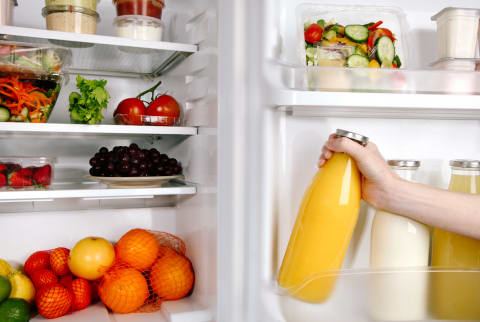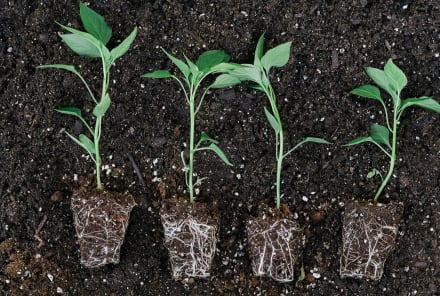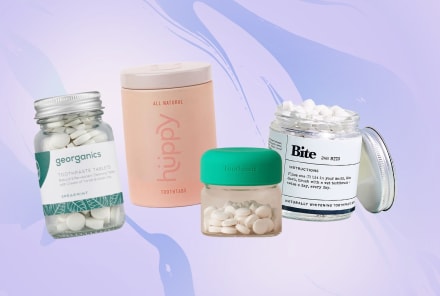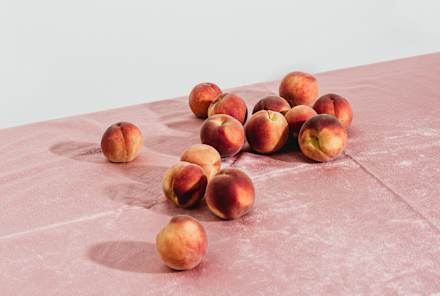Advertisement
These Storage Hacks Can Help Your Produce Stay Fresh Weeks Longer


In the U.S., nearly 60 million tons of our food is wasted every year. This stat makes it clear that many of us need to be better about keeping what we buy out of the trash. Properly storing your food can give you extra days (if not weeks) before it spoils, allowing you to use more of your grocery haul.
The most perishable thing we buy is fresh produce. We've all had good intentions of eating that cucumber that ended up disintegrating on the bottom of the crisper or that avocado that we waited forever to ripen, only to bitterly disappoint us when we cut it open.
Let's unpack the do's and don'ts of how to keep produce fresh for longer to preserve its nutrients and cut down on food waste one meal at a time:
DO: Make bouquets of your herbs and asparagus
Parsley, basil, coriander, and other fresh herbs will last the longest if you trim their bottoms, place them in a glass of water in the fridge door, and cover them with a small plastic or reusable bag.
Chop off what you need, and leave the rest in the jar of water. This can prolong their life by weeks in some cases (Psst...you can also dry them before they go bad). The same goes for asparagus! Simply trim the ends and stand upright in a glass of water.
You can keep scallions submerged in water as well. And don't toss the ends once you chop them off! They'll resprout if you plant them in your garden.
DO: Bag your greens
Green leafy vegetables like kale, spinach, etc., love to be stored in airtight bags or containers. When I bring greens home from the market, the first thing I do is rinse them under cool water, dry them off, and place them in a large bag that will keep them dry.
I like to reuse the previous week's bag as a trash liner, but you could also opt for a reusable bag or airtight container.
DO: Trim the greens off your root vegetables
If you buy bunches of carrots, beetroot, turnips, or radishes with green tops, cut them off before you store them. The leaves will wick moisture from the roots and spoil quickly. You can store these greens separately from the rest of the root veggies, like you would leafy greens. Toss them into stir-fries, salads, and soups for a crisp kick.
DO: Give your carrot and celery a bath
Storing your carrots and celery stalks in a bath of water will help keep them crisp and firm for longer. Just be sure to change the water every few days.
DO: Cool bananas
The warmer the environment, the faster your banana will ripen. Once bananas are ripe, refrigerate them, being careful to keep away from other produce. Better still, peel them and place them in containers in the freezer to use in smoothies.
DO: Keep apples cold
Apples will spoil quickly when left out but can last weeks in an airtight container in the fridge. The container will keep the fruit's ethylene gases away from your other produce and help keep them crisper for longer.
DON'T: Put certain foods near each other
Some foods produce a significant amount of ethylene gas, so they are best kept away from other produce. These include bananas (as mentioned above), kiwi fruit, apples, tomatoes, cantaloupe, avocado, pears, potatoes, and peppers. Try to store these in their own area when you can. And never store them in sealed bags; it will accelerate their ripening, and they will spoil faster.
The takeaway
With a little love and preparation, you can get much more out of the produce you buy. When all else fails and your produce starts to go off, utilize your freezer! Most fruits and vegetables freeze really well—simply chop them up and put them in an airtight container or freezer bag and get excited to enjoy them in a soup, stew, or bake later on. Every bit of food waste saved counts.











